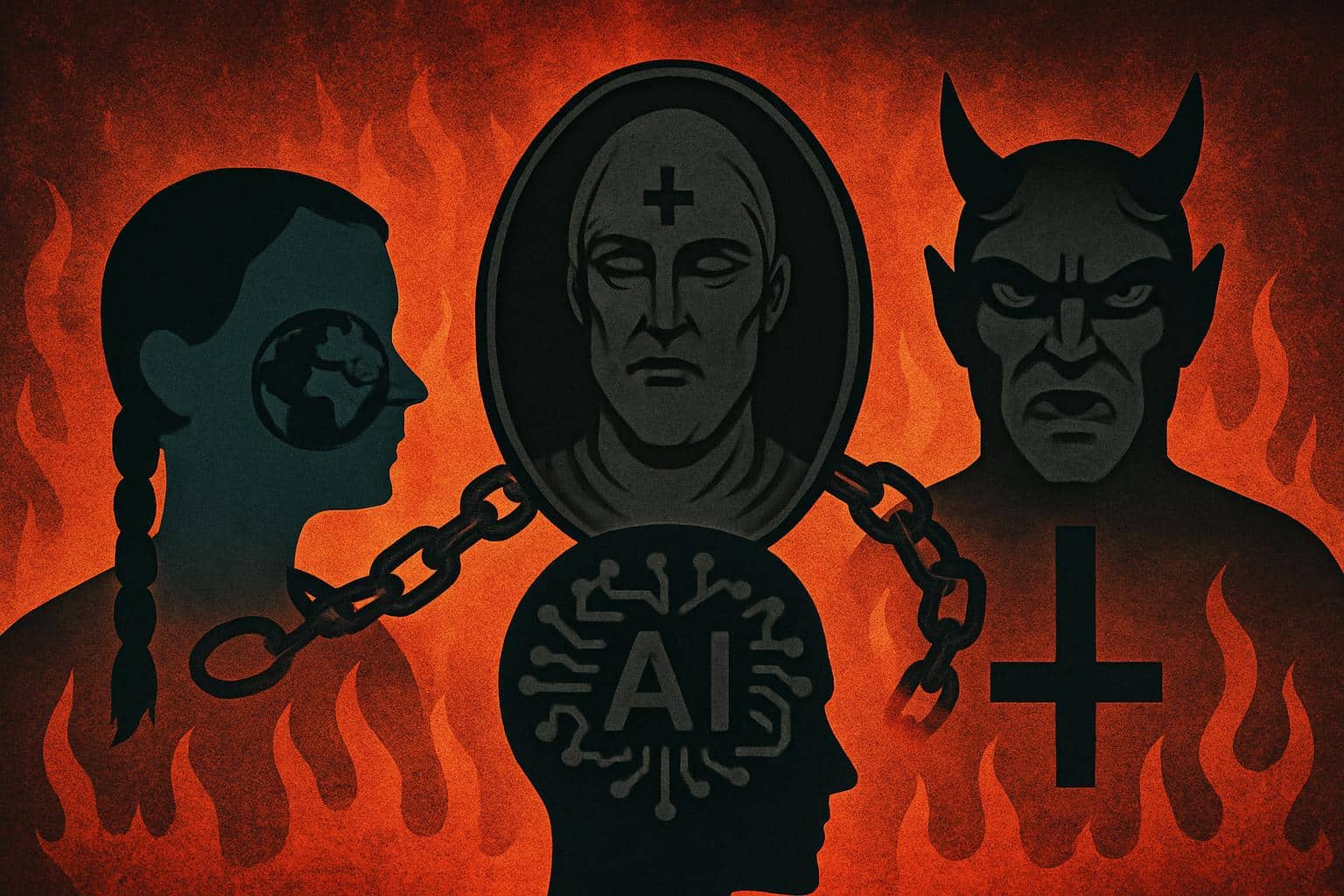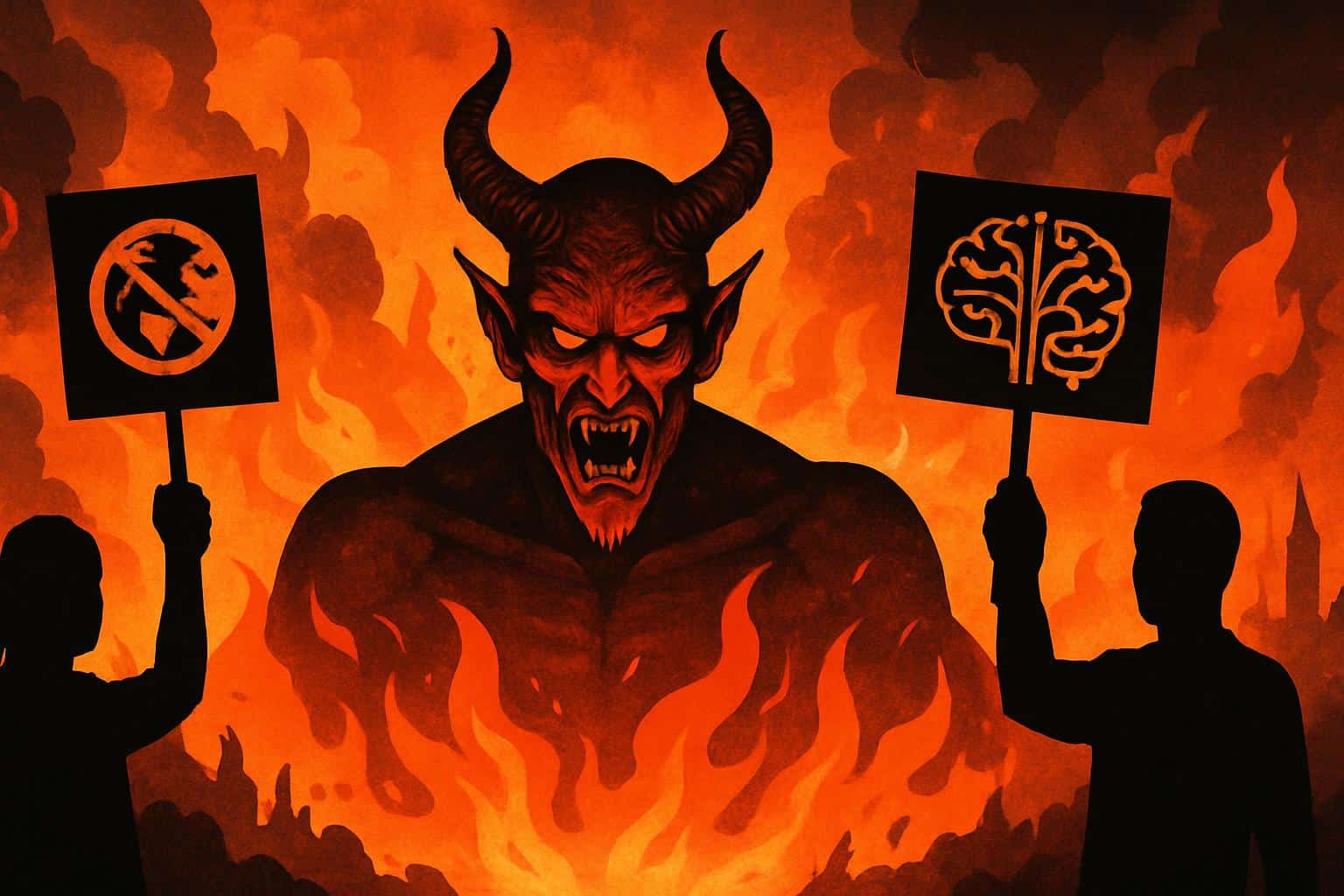The billionaire investor Peter Thiel reportedly described climate activist Greta Thunberg and well-known critics of artificial intelligence as the foot soldiers of the Antichrist in comments captured during a private lecture, as reported by The Washington Post last Tuesday. Knowingly cast in overtly religious language, these remarks pit the PayPal/Palantir co-founder against the climate movement and AI safety, respectively.
What Thiel reportedly said in a private lecture recording
The Post says that Thiel gave a four-part speech titled “The Antichrist,” and attendees were informed in advance the event was off the record. On the recording, which was reviewed by the paper, Thiel suggested that those championing efforts to stop or strictly curb technologies such as advanced AI are “legionnaires of the Antichrist,” naming Thunberg and AI-risk advocate Eliezer Yudkowsky. He juxtaposed an earlier vision of a “mad scientist” prototype with a new adversary he casts as a technophobe eager to bring science to a grinding halt.

According to Reuters, Thiel also thinks that a populist leader against AI would rally people around a one-world, anti-innovation political project. In that account, the enemy is not only rogue technology but also its political response — which in Thiel’s mind could seal stagnation.
Targets and context for Thiel’s remarks on AI and climate
Thunberg is one of the world’s best-known climate campaigners, having made headlines confronting politicians on their environmental record in terms of emissions and fossil fuels.
Casting her as a symbol of anti-growth, you’re-cold-and-hungry forces is part of a wider critique on the right that climate policy is just a Trojan horse for centralized control. Climate economists and energy analysts, on the other hand, argue that decarbonization depends on more technology being developed, not less — from next-generation grids and storage to carbon capture and advanced nuclear.
Yudkowsky, who works for the research nonprofit MIRI and is an early voice in AI safety, argues that unbridled development of frontier models could prove catastrophic. His recent book, If Anyone Builds It, Everyone Dies, expresses a maximalist caution about runaway systems. The irony is that Thiel helped fund Yudkowsky’s work almost 20 years ago, when it was under the auspices of the Singularity Institute — though it’s just one more piece of evidence that Silicon Valley’s accelerationists are not so different from its doomsayers despite their diverging philosophies.
Thiel’s use of “Luddite” places the discussion in a historical framework. The first Luddites were highly skilled textile workers who vandalized machines they believed posed a threat to their jobs. And somewhere along the line, the label has devolved into a convenient pejorative meaning blanket opposition to new technology. Critics of the term also caution that it frequently conveys legitimate risk assessment, particularly in domains such as AI where the possibility for error and harm is nontrivial.

Public sentiment on AI risk and emerging regulation trends
Public concern about AI is not eccentric. Polls conducted by the Pew Research Center indicate that most Americans are more concerned than enthusiastic about the spread of AI, and policymakers have taken note. The Stanford AI Index has reported a surge in global AI-related legislative proposals, as well as an increasing amount of corporate and academic investment into safety research. Even among tech researchers, top minds are divided on the timelines, capabilities of the models, and sufficiency of existing safeguards.
In that environment, rhetoric matters. Comparing environmental activists or AI skeptics to an eschatological enemy may energize loyalists, but it risks killing off policy conversation at exactly the time standard-setting is most awake. Safety researchers contend that preventive practices — including third-party evaluations of high-risk systems, secure model deployment, and transparency around training data — can coexist with breakneck innovation.
Tech power, faith, and political messaging in Silicon Valley
Thiel has never made a secret of the influence of philosophy and faith on his worldview, consistently framing technological progress as a civilizational battle. Casting political opponents in religious terms is not new to American discourse, but for it to resurface from a figure with deep influence across startups and national-security-focused technology, as well as philanthropy, carries weight. The pairing with apocalyptic themes highlights how issues around climate policy and AI governance have become culture-war signifiers as much as questions of policy.
Reuters briefly mentioned that Thiel had been advising other tech execs about philanthropic decisions, but the fact only underscores the cabals in which these types of sentiments are exchanged. Whether his Antichrist framing spreads as a broader talking point or remains a provocative outlier, it highlights how some in Silicon Valley are recasting critics of unfettered tech growth not as policy counterweights but rather as existential antagonists.
Why these remarks matter now for AI and climate debates
As governments debate rules for frontier AI models and countries race to meet climate goals, the fulcrum is nuanced trade-offs, not litmus tests. Thiel’s comments could add to growing scrutiny of how the tech elite set the parameters for debate — who gets celebrated as a visionary, who is branded a saboteur — and how such narratives condition the laws and norms that come after. The issue is not just who builds the future, but how society debates it.

